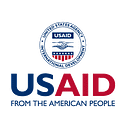Creative Funding Model Helps Cities Expand Primary Health Care in Bangladesh
New efforts will make health care more affordable for residents
Decision makers like Habiganj Municipality Mayor Ataur Rahman Selim are charting fresh territory in primary health care. For the first time, municipalities like Habiganj are allocating funding from their own resources to support primary health care services in urban areas of Bangladesh.
“We want to show that basic primary care is a rising priority for our municipality,” said Mayor Selim in announcing new efforts that will make it easier for residents to access and afford services.
High-quality, community-based primary health care is the backbone of healthy families and stable communities, and a vital safeguard against public health threats. Yet, in Bangladesh, rapid urbanization combined with poor financing for public primary health care services have led to major health inequities and gaps in coverage. In times of need, most city dwellers resort to using expensive private facilities they can barely afford when public services are not available.
To address this mounting challenge, USAID’s Local Health System Sustainability Project (LHSS) has been collaborating with local government officials in Bangladesh’s Sylhet and Rajshahi Divisions, where millions of people lack reliable access to public primary health care.
Their hard work is paying off. For the first time, health care decision makers in 10 municipalities within the divisions last year decided to provide funds for primary health care activities directly from their revenue.
Under a collaborative funding model, these municipal commitments will be bolstered by other resources. The local health ministry and private sector partners will supply commodities, and local health departments will provide doctors and other clinical staff. This cost sharing will supplement the limited funding that municipalities are able to set aside, while reducing out-of-pocket health care expenditures for many low-income residents.
“We are working quite hard to get four previously shuttered facilities renovated and repurposed to create new primary health care programs for our residents,” said Bogura Municipality Mayor Rezaul Karim Badsha.
“Following in our footsteps, other local leaders in the health sector are also becoming sensitized to the importance of primary health care,” said Mayor Badsha. “We are seeing their interest in what we are doing, and other municipalities may replicate our efforts to expand these essential services in their own cities and towns.”
